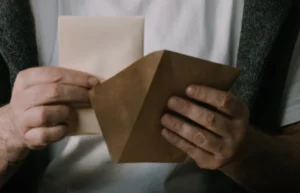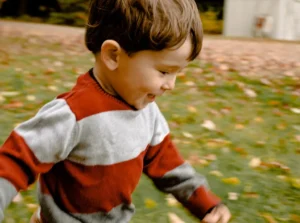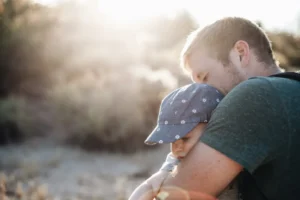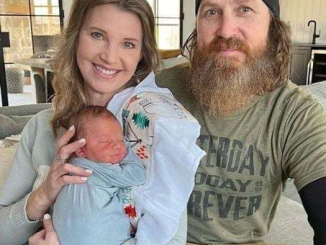
An orphan colt whose mother died shortly after giving birth has a new mom – a mare that had tragically lost her foal – thanks to the generosity of strangers and Washington State University veterinarians playing matchmaker.
Pairing an orphan foal and a nursing mare is a challenging task and one that commonly ends with failure. In this case, the connection was instantaneous.
“The mare had only been without a foal for about 24 hours,” Dr. Lisbeth Matthews, an equine medicine and surgery intern, said. “We walked her into the Veterinary Teaching Hospital and past him. He made a noise, and she went, ‘oh, there’s my foal,’ and started making noises back at him.”
It was a surprise to everyone how quickly the mare, named Shelly but affectionally called Mama by her owners, Roy and Faye Lions, accepted the colt. Equine veterinarian Jenifer Gold, who was helping to care for the foal and to supervise its introduction to the mare, said nursing mares frequently reject orphan foals, and when they don’t, the pairing process often takes days.
“She walked in and started nickering at him like it was her own baby – it was unbelievable,” Gold said. “I’ve been doing this for 20 years, and I have never seen it happen that way.”
The foal, which has been named Laredo, was admitted to the teaching hospital by his owner, Spokane resident Rachel Williams, just days after he was born when he started showing troubling digestive issues. Shortly after the colt arrived in Pullman, Faye Lions placed a call to WSU to see if the equine team was aware of any orphan colts needing a nursing mare.
“Our foal was dead, and nothing was going to bring it back, so we were hoping we could help someone else,” Faye Lions said. “It just so happened there was a foal there.”
A day later, the colt and Shelly were introduced.
“For them to be so willing to basically hand over their animal to a complete stranger after experiencing their own tragedy was pretty phenomenal,” Williams said. “I feel like in this scenario it was the worst of the worst for everybody, but there was a little bit of silver lining to the story.”
Williams is also grateful for the care and treatment she and her foal received at WSU.
“I just can’t even find words to say how great the veterinarians at WSU were,” she said. “They went above and beyond. I am just happy I ended up at WSU. I am so glad we were able to match those two up – it is kind of a miracle.”
Shelly will live with Williams until the colt is ready to be weaned, likely in six months, before she will return to her home in Kamiah, Idaho.
“It will be tough to say goodbye because you just naturally start to bond with animals, and she has kind of been my lifesaver,” Williams said. “It will be bittersweet for sure, but I am sure her owners will be happy to have her back.”
During the spring, the equine team at WSU typically sees at least a handful of orphan foals. Equine medicine specialist Dr. Macarena Sanz said orphan foals can be fed a powdered milk formula designed for horses, but those raised by humans typically develop behavioral issues that can become problematic as the animal matures.
“They turn out to be socially weird, have no understanding of personal space, and they are more difficult to train,” WSU equine veterinarian Macarena Sanz said. “The fact that this orphan foal has a mare is really going to make a difference.”
Sanz strongly encourages owners to immediately call their veterinarian if a foal is orphaned, as early care is critical to the animal’s survival.
His Late Wife Left Him a Final Letter – The Secret Inside Led Him to a Paternity Test
Ten months after his wife passed away, a widower found the strength to open the last letter she wrote for him before she died. After reading her heartbreaking confession, he quickly decided to take a paternity test.

On November 29, 2021, a sad widower found comfort in the “Off My Chest” subreddit, sharing his deep sadness. He wasn’t looking for advice but received support from others who reminded him that it was okay to cry about what his wife had done.

The man and his wife had a happy four-year marriage. They loved their time together, and the birth of their son made them even happier. But life took a tragic turn for them.

His Late Wife’s Letter
The widower’s wife passed away ten months before he shared his story on Reddit. Heartbroken and feeling lost, he found the strength to keep going. Even in his sadness, he promised to be a caring father to his 4-year-old son.

As time went on, things began to feel a little more normal for him. His son became his whole world, and he couldn’t imagine life without their bond. During this time, he found the last letter his wife wrote for him. He had known about the letter but didn’t have the courage to read it until ten months later.

After finally reading the letter, he was in shock. It took him a long time to process what he had learned from her honest words.
In the letter, his wife revealed that she had gotten very drunk at her bachelorette party and had a one-night stand with a stranger. As a result, she became pregnant, and now he was left unsure if their son was really his, since this happened just days before their wedding.

Receiving Online Support and Putting His Life Back Together
“I am so incredibly sorry. I know how much this hurts. Your feelings are valid,” wrote one Reddit user. The widower thanked the person and said he planned to take a long drive to clear his mind and deal with his emotions.
“Driving can help. Just make sure to stay safe and enjoy the music,” another user suggested.
Meanwhile, he felt relieved to leave his son at his parents’ home but worried about how he would feel when they were together again. When his son came back home, the father was nervous about how to react.

Deep down, he loved his son, but he was scared that he would see him differently after learning the truth about his wife. When he saw his son, he quickly ran to him and hugged him tightly as if he hadn’t seen him in years. His son hugged him back, showing how happy he was to be with his dad.
The widower felt overwhelmed and almost cried in his son’s arms as he tried to come to terms with his wife’s betrayal. He was determined that his son would always be his son and that their bond would stay the same.



Leave a Reply